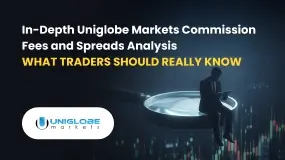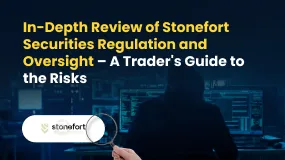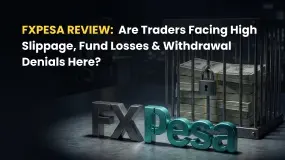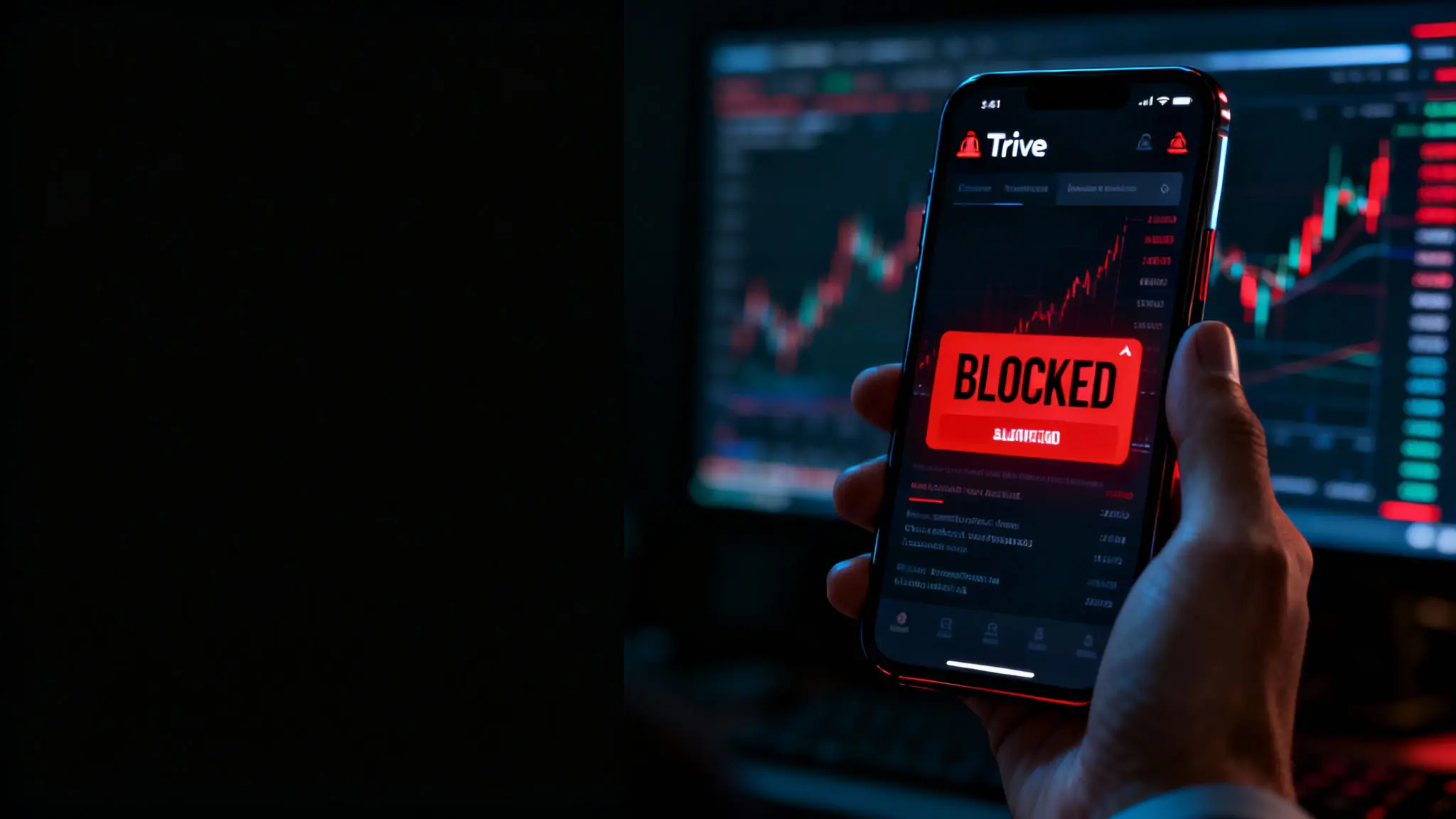简体中文
繁體中文
English
Pусский
日本語
ภาษาไทย
Tiếng Việt
Bahasa Indonesia
Español
हिन्दी
Filippiiniläinen
Français
Deutsch
Português
Türkçe
한국어
العربية
What Every Trader Must Know in a Turbulent Market
Abstract:The global financial markets are no strangers to periods of uncertainty, and recent weeks have been a testament to their unpredictable nature. Heightened volatility across major indices, including the US stock market, has left traders reassessing their strategies as they face both opportunities and risks.

The global financial markets are no strangers to periods of uncertainty, and recent weeks have been a testament to their unpredictable nature. Heightened volatility across major indices, including the US stock market, has left traders reassessing their strategies as they face both opportunities and risks.
Small-cap stocks have been hit particularly hard, with the Russell 2000 entering correction territory. While value stocks have displayed relative resilience, growth stocks are under pressure due to changing investor sentiment. These shifts are largely influenced by concerns surrounding the incoming US administrations policy direction, reigniting debates on trade, regulation, and economic priorities.

The technology and growth sectors have borne the brunt of this uncertainty. The Nasdaq 100 recently posted its steepest weekly decline since mid-November, underscoring investor apprehension. Meanwhile, value-oriented sectors and traditional industries have fared better, benefiting from speculation about potential fiscal spending and deregulation.
Economic data has painted a complex picture for market participants. Strong employment figures point to underlying economic resilience, but rising Treasury yields suggest inflationary pressures are building. This has raised questions about how the Federal Reserve might adjust monetary policy in the months ahead.
Consumer spending trends and corporate earnings will play a key role in shaping market sentiment. As earnings season approaches, traders are eager for insights into business confidence and sector-specific performance. Markets are also closely watching potential trade policy changes, which could have significant ramifications for global economic relationships.
Different sectors face varied prospects under the incoming administration. Traditional industrial and financial sectors are positioned to benefit from proposed infrastructure spending and deregulation measures. However, technology companies face potential challenges related to antitrust scrutiny and other regulatory concerns.
Healthcare stocks remain particularly sensitive to political developments. Ongoing debates around healthcare reform could introduce significant volatility to this sector. Similarly, energy companies may be impacted by shifts in environmental policies and drilling regulations, adding another layer of complexity for investors.
In times of heightened uncertainty, effective risk management is paramount. Traders using CFD platforms are advised to adopt conservative strategies, such as setting tight stop-loss orders and managing position sizes carefully. Options trading activity indicates elevated expectations of volatility, as premiums rise to reflect increased uncertainty.
Diversification remains a powerful tool for mitigating risk. By spreading investments across sectors and asset classes, traders can reduce exposure to policy-specific risks while maintaining the potential for gains. Understanding the broader market dynamics and focusing on long-term structural trends can also help traders make more informed decisions.
Although the markets are currently unsettled, historical data suggests that stability often returns once the initial uncertainty subsides. The first 100 days of a new administration typically provide clearer indications of policy priorities, allowing markets to adjust accordingly.
Corporate earnings and economic data are expected to regain prominence as key drivers of market direction. Currency markets, in particular, may see significant activity as forex traders respond to shifts in trade policies and international economic relationships.
For long-term investors, these turbulent times can present opportunities in sectors poised for structural growth. Meanwhile, short-term traders may find ways to capitalise on volatility, provided they stay disciplined and focused on their strategies.
While market turbulence is challenging, it also underscores the importance of a well-prepared approach. By staying informed and adapting to evolving conditions, traders can navigate uncertainty with greater confidence.

Disclaimer:
The views in this article only represent the author's personal views, and do not constitute investment advice on this platform. This platform does not guarantee the accuracy, completeness and timeliness of the information in the article, and will not be liable for any loss caused by the use of or reliance on the information in the article.
Read more

In-Depth Uniglobe Markets Commission Fees and Spreads Analysis – What Traders Should Really Know
For experienced traders, the cost of execution is a critical factor in broker selection. Low spreads, fair commissions, and transparent pricing can be the difference between a profitable and a losing strategy over the long term. This has led many to scrutinize the offerings of brokers like Uniglobe Markets, which presents a tiered account structure promising competitive conditions. However, a professional evaluation demands more than a surface-level look at marketing claims. It requires a deep, data-driven analysis of the real trading costs, set against the backdrop of the broker's operational integrity and safety. This comprehensive Uniglobe Markets commission fees and spreads analysis will deconstruct the broker's pricing model, examining its account types, typical spreads, commission policies, and potential ancillary costs. Using data primarily sourced from the global broker inquiry platform WikiFX, we will provide a clear-eyed view of the Uniglobe Markets spreads commissions prici

In-Depth Review of Stonefort Securities Regulation and Oversight – A Trader's Guide to the Risks
For experienced traders, the process of selecting a new broker transcends a simple comparison of spreads and leverage. It is a meticulous due diligence exercise where the integrity of the broker's regulatory framework is paramount. Stonefort Securities, a relatively new entrant in the crowded brokerage space, presents a complex and often contradictory profile. On one hand, it boasts a modern MT5 platform and a stream of positive user testimonials. On the other hand, it is shadowed by severe regulatory warnings that question the very foundation of its operations. This in-depth review focuses on the core issue for any long-term trader: Stonefort Securities regulation and oversight. We will dissect the broker's corporate structure, scrutinize its licensing claims, and analyze what the data implies for trader protection and fund security. For traders evaluating whether Stonefort Securities is a trustworthy partner, understanding these details is not just important—it is essential.

FXPesa Review: Are Traders Facing High Slippage, Fund Losses & Withdrawal Denials?
Do FXPesa support officials fail to pick up your calls when you raise fund withdrawal requests with the broker? But are these officials always open to you regarding fund deposits? Do you frequently spot slippage and stop-loss order execution errors on the FXPesa login? These issues are increasingly becoming common with this forex broker. Consequently, many traders have expressed their dissatisfaction with the broker online. In this FXPesa Review article, we have shared some of these complaints. Take a look!

Trive Investigation: High Score, Hidden Risk - The Profit Paradox
A disturbing pattern has emerged regarding the broker Trive. Despite holding a high WikiFX score (7.91) and valid licenses in South Africa and Australia, recent investor reports suggest a significant disconnect between the platform's reputation and its treatment of profitable clients. While the regulatory paperwork appears in order, our data indicates that traders are facing sudden account freezes and accusations of "trading abuse" precisely when they attempt to withdraw profits. This report investigates why a seemingly "safe" broker is generating high-risk complaints.
WikiFX Broker
Latest News
WikiFX's New Evaluation of ATM Capital LTD: Does its License Protect the Arab Investor?
How a Fake Moomoo Ad Led to the “New Dream Voyage 5” Scam
Is Axi Legit? A Data-Driven Analysis of Its Regulatory Standing and Trader Feedback
FXPesa Review: Are Traders Facing High Slippage, Fund Losses & Withdrawal Denials?
Trive Investigation: High Score, Hidden Risk - The Profit Paradox
In-Depth Uniglobe Markets Commission Fees and Spreads Analysis – What Traders Should Really Know
Bessent believes there won't be a recession in 2026 but says some sectors are challenged
Is GGCC Legit? A Data-Driven Analysis for Experienced Traders
Young Singaporean Trader Grew USD 52 into a USD 107,700 Portfolio
FreshForex (Latest) Review 2025 — Is FreshForex Legit?
Currency Calculator



